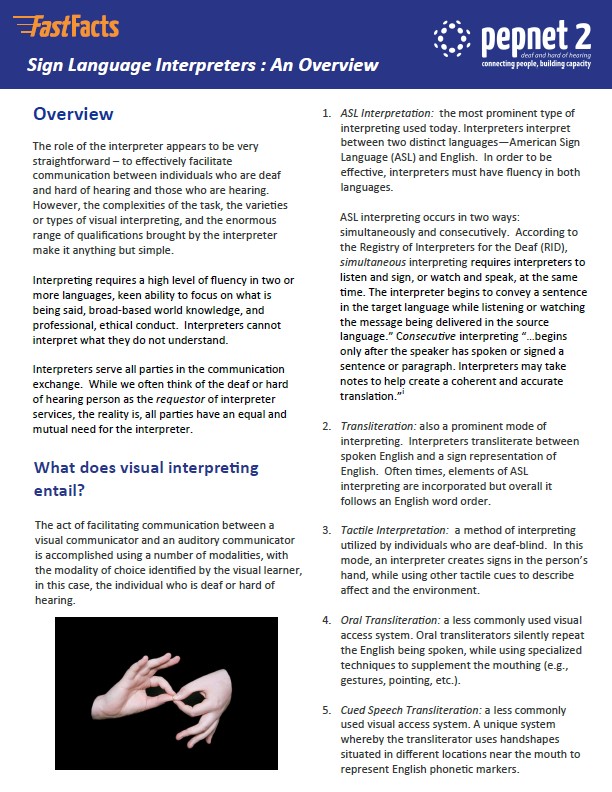<< Learning Center
Media Accessibility Information, Guidelines and Research
Sign Language Interpreters: An Overview
Fast Facts
The role of the interpreter appears to be very straightforward – to effectively facilitate communication between individuals who are deaf and hard of hearing and those who are hearing. However, the complexities of the task, the varieties or types of visual interpreting, and the enormous range of qualifications brought by the interpreter make it anything but simple.
Interpreting requires a high level of fluency in two or more languages, keen ability to focus on what is being said, broad-based world knowledge, and professional, ethical conduct. Interpreters cannot interpret what they do not understand.
Interpreters serve all parties in the communication exchange. While we often think of the deaf or hard of hearing person as the requestor of interpreter services, the reality is, all parties have an equal and mutual need for the interpreter.
Tags:
Please take a moment to rate this Learning Center resource by answering three short questions.

